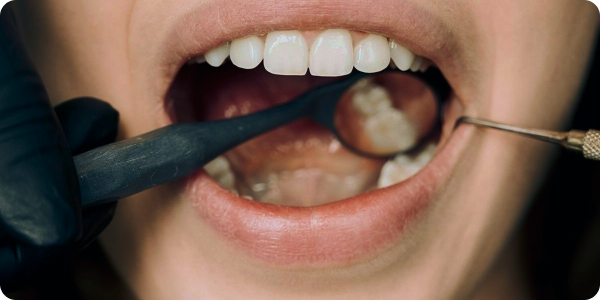
Your oral health extends far beyond regular brushing teeth and visiting the dentist. What you consume daily has a profound impact on the strength of your teeth, gum condition, and overall mouth health.
Understanding the relationship between nutrition and dental wellbeing empowers you to prevent tooth decay, strengthen enamel, and maintain healthy gums throughout your lifetime.
Every meal creates an environment in your mouth that can either support or compromise your dental hygiene. When you understand how specific nutrients protect your smile and which foods can lead to bad teeth, you gain tools to transform your oral health from the inside out.
The Foundation of Oral Health: Essential Nutrients for Strong Teeth and Bones
Building healthy teeth requires essential nutrients that strengthen enamel, support jawbone density, and promote tissue repair. These nutrients form the cornerstone of effective dental hygiene, working alongside proper brushing teeth techniques and regular dental cleaning.
Calcium and phosphorus serve as primary building blocks for tooth enamel and jaw bones. These minerals continuously remineralise teeth, replacing lost minerals and maintaining structural integrity. Dairy products, leafy greens, almonds, and tinned fish provide excellent calcium sources, whilst eggs and lean meats offer phosphorus to complement absorption.
Vitamin D enables calcium absorption, making it crucial for maintaining healthy teeth. Without adequate vitamin D, your body cannot effectively utilise the calcium you consume, potentially leading to weakened enamel and increased cavity formation. Fatty fish, egg yolks, and fortified dairy products provide dietary sources.
Vitamin C supports healthy gums by promoting collagen production and enhancing tissue repair. This antioxidant helps prevent gum inflammation and supports healing after dental cleaning procedures. Bell peppers, strawberries, and broccoli are excellent sources of vitamin C.
How Diet Fuels Tooth Decay and Cavity Formation
Understanding the mechanisms of tooth decay empowers informed dietary choices. When you consume sugary or starchy foods, the harmful bacteria in your mouth produce acids that attack the enamel, gradually weakening the protective layer of your teeth and leading to cavity formation.
Frequent snacking maintains an acidic mouth environment, preventing saliva from neutralising harmful substances and remineralising enamel. This continuous acid attack explains why meal timing is as important as brushing your teeth regularly, and understanding how long you should brush your teeth is crucial.
Sticky foods, such as dried fruits and sweets, adhere to tooth surfaces, providing sustained bacterial nourishment. These create ideal conditions for teeth and tooth decay by remaining difficult to remove through normal saliva action, requiring thorough taking plaque off teeth techniques.

Foods That Fight Inflammation and Support Healthy Gums
Maintaining healthy gums requires a balanced diet that addresses inflammation and supports tissue repair. Omega-3 fatty acids found in fatty fish and walnuts possess anti-inflammatory properties, which benefit gum health and complement dental hygiene practices.
Green tea contains catechins that fight bacteria and reduce mouth inflammation. Its antibacterial properties help control harmful bacteria contributing to gum disease and bad teeth.
Probiotic-rich foods, such as yoghurt, support oral health by promoting beneficial bacteria, helping to maintain a balanced oral microbiome, and reducing harmful bacteria that cause inflammation and tooth decay.
The Worst Offenders: Foods and Drinks That Damage Your Smile
Certain foods pose significant oral health risks. Sugary beverages create ideal conditions for cavity formation by bathing teeth in sugar and acid. Even healthy food options like fruit juices contribute to teeth and tooth decay through natural sugars and acids.
Sticky sweets provide sustained bacterial nourishment by adhering to tooth surfaces long after they are consumed. Refined carbohydrates break down quickly, providing immediate fuel for harmful bacteria and contributing to tooth decay.
Highly acidic foods can temporarily soften the enamel, making teeth more vulnerable to damage. Understanding proper timing, waiting 30 minutes after consuming acidic foods before brushing your teeth helps protect your enamel while enjoying these foods.
Building Your Tooth-Friendly Meal Plan: Daily Nutrition Strategies for Optimal Oral Health
Creating sustainable eating patterns supporting healthy oral health requires thoughtful planning. Start your day with tooth-friendly breakfasts that include calcium-rich dairy, whole grains, and fresh fruits. Greek yoghurt with berries provides calcium, probiotics, and antioxidants supporting oral health.
Plan balanced meals that incorporate essential nutrients for optimal dental hygiene. Include leafy greens for calcium, lean proteins for phosphorus, and colourful vegetables for vitamins. Cheese serves as an excellent meal conclusion, neutralising mouth acids and providing enamel-strengthening calcium.
Strategic snacking supports healthy teeth rather than compromising them. Choose nutrient-dense options like vegetables, nuts, or cheese over processed snacks, which contribute to rotten teeth. Time sugary treats with meals when increased saliva production helps neutralise acids.

Hydration plays a crucial oral health. Plain water should be your primary beverage, helping to rinse away food particles and maintain optimal saliva production. Fluoridated water provides additional cavity protection.
For individuals managing specific oral health challenges or dental infections, targeted nutrition plays a crucial role in supporting healing. E-Surgery offers convenient access to medications such as Amoxicillin capsules for dental infections and Metronidazole tablets for dental infections, as part of comprehensive treatment plans.
Nourishing Your Smile for Life
Exceptional oral health extends beyond dental cleaning frequency or brushing teeth duration. Your daily food choices lay the foundation for all dental hygiene practices, influencing the strength of your enamel and the resilience of your gums. Understanding these nutritional strategies helps prevent tooth decay, avoid rotten teeth, and maintain healthy gums.
Remember that optimal oral health benefits from professional guidance and care. For questions about nutrition, dental hygiene, medications, or oral care, consider our Ask-a-Pharmacist service. This resource offers expert advice on maintaining healthy oral health and developing personalised strategies tailored to your unique needs.
Your smile reflects both dental hygiene practices and cumulative daily choices about nutrition. By choosing healthy food options and maintaining consistent oral care, you’re investing in lifelong confident smiles and optimal oral health.












